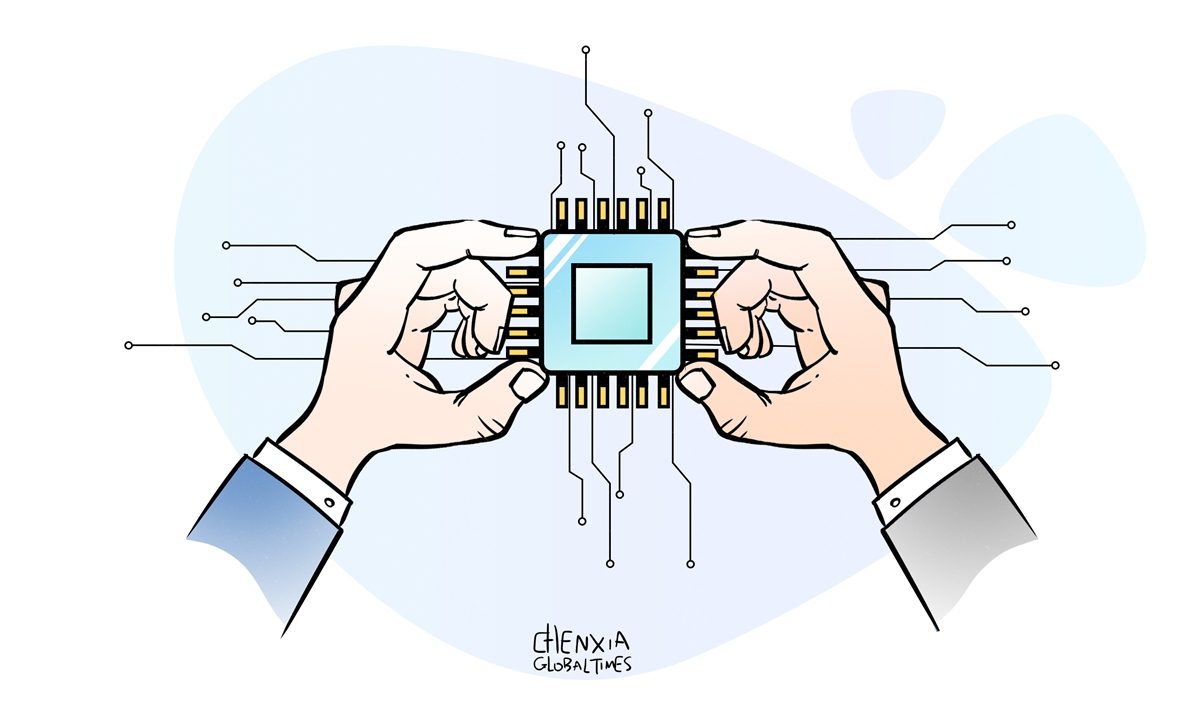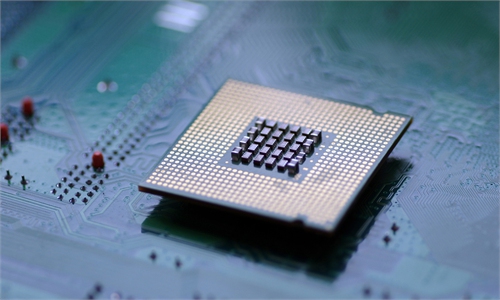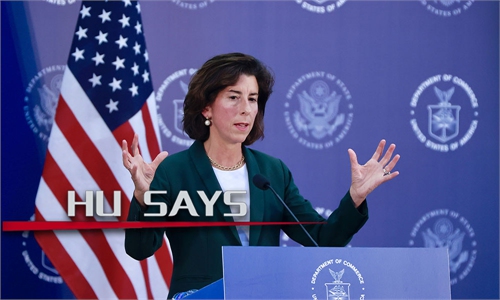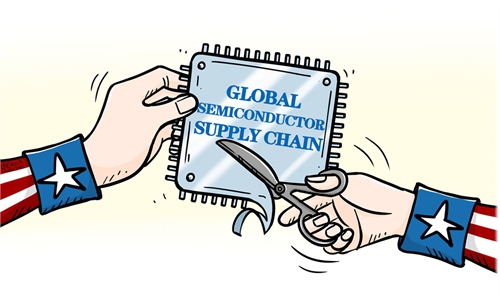
Illustration: Chen Xia/Global Times
It's widely believed that South Korea and the Netherlands, two of the leading players in global chip supply chains, will enhance their cooperation in semiconductors and even establish a "chip alliance" during South Korean President Yoon Suk-yeol's ongoing state visit to the Netherlands.
Cooperation can always foster mutually beneficial ties, but if the cooperation is hijacked or severely constrained by the US, such efforts will only be counterproductive, and create new obstacles for the development of the semiconductor industry in the two countries.
The US is making it tougher for companies like ASML and Samsung to sell advanced chips and chipmaking technology to China. Step by step, the Biden administration is trying to push countries like South Korea and the Netherlands into a dangerous position of being cannon fodder in the aggressive US China policy.
Amid uncertainty generated by US chip war against China, it comes as no surprise that South Korea and the Netherlands choose to sit down and discuss strengthening cooperation on semiconductors. It seems there is a willingness to cooperate on both sides, with the aim of resisting headwinds and expanding business opportunities in the area of semiconductor and chipmaking technology.
Yoon Suk-yeol departed for the Netherlands on Monday. As reported, the trip marks the first state visit by a South Korean leader since the two countries established diplomatic ties in 1961. Reuters published an article on Monday saying that a potential "chip alliance" is likely to be the highlight of Yoon Suk-yeol's discussions with political and industry leaders in the Netherlands.
If a "chip alliance" can be established between South Korea and the Netherlands, this alliance should serve the interests of the two countries themselves, rather than Washington's chip war against China. In today's competitive global arena, an alliance severely constrained by the US cannot help South Korea and the Netherlands win the high-end chip technology competition, which is becoming increasingly fierce. On the contrary, it will stifle their advantage in cutting-edge technologies.
As the global chip war escalates, the industry is witnessing intense competition, with every player vying to win the game. The core of competition will focus on high-end semiconductors, instead of low-end chips.
The semiconductor industry in China maintained steady growth in recent years, bringing competitive pressure on other countries. If countries like South Korea want to maintain an advantage against competitors, it must improve its added value and technology, focus more on high-end semiconductors, and develop unique competitive advantages in cutting-edge technologies.
While the US considers the interests of its own companies and those of allied nations, which sees it compromise and gradually relax controls on exports of low-end chips to China, Washington's restrictions on high-end chip technology exports are expected to be strengthened, instead of eased.
In the field of cutting-edge semiconductor technologies, the US, South Korea and the Netherlands have a direct competitive relationship. If South Korea and the Netherlands choose to strengthen cooperation and establish an alliance, a logical explanation will be that they will try to improve their competitiveness against competitors.
In the field of cutting-edge semiconductor technologies, South Korea and the Netherlands' main competitor is the US. So, it will be unwise for the two countries to allow their cooperation to be kidnapped by the US and become cannon fodder in Washington's chip war against China.
In the foreseeable future, the real competition will focus on the high-end chip field. As China takes action to mobilize national resources to achieve breakthroughs in core technologies, mostly chip development, the country is determined to develop a leading edge semiconductor ecosystem.
Faced with pressure from the US, other countries, including US allies, will also not sit idly by. They are strengthening cooperation and improving chip technology. This means that the US cannot independently control global supply chains in the high-end chip industry, which is conducive to breaking the US' technological containment against China.
The author is a reporter with the Global Times. bizopinion@globaltimes.com.cn



